- Home
- Kelley Armstrong
Alone in the Wild Page 3
Alone in the Wild Read online
Page 3
I only glower at him. He grins, leans forward, and smacks a kiss on my cheek. “Yep, I’m not sure which is the scarier prospect. We’ll both go check the scene first. Wrap her up properly, and I’ll break camp.”
FOUR
We’re heading back to the clearing. Dalton has the baby snuggled under his parka, left undone just enough to be sure she’s breathing. I’m in the lead, the dogs trotting along beside me, confused but calm, sensing we have this under control.
When we reach the deeper snow, it’s slow going with the heavy pack on my back. It’s not as bad as it sounds, though. On a trip into Whitehorse, I made an amazing discovery: backpacks are not unisex.
I had always worn a regular backpack, and if someone had offered me a “girl” one, I’d have been offended and amused, like when I saw an ad for a women’s pen. Except, as I discovered, a women’s backpack is a perfectly logical invention. The normal ones distribute the load across the shoulders, but women carry weight better at their hips. My new backpack utilized that, and I no longer felt like the ninety-pound weakling struggling to carry a backpack half the size of Dalton’s.
We follow my boot prints into the clearing. A woman died here, and we need to disturb the scene as little as possible. At the clearing edge, I tie Raoul to a tree and command Storm to stay with him.
I return to the spot where I unwrapped the baby, and I set my backpack in the depression I’d already created. Then I unzip Dalton’s jacket and carefully remove the baby. She fusses at being pulled away from her warm cocoon. I check her, and then put her back with Dalton, and she promptly quiets.
“The body’s over here,” I say.
Dalton follows, staying in my footsteps. The woman lies where I left her, untouched, which is a relief. I’d realized too late that I should have re-covered her with snow to stifle the smell from scavengers. But I suppose being frozen muffled her scent well enough.
I was so panicked earlier that I hadn’t taken more than a cursory glance at the woman. Now I hunker onto my haunches for a closer examination. She’s older than I thought, my initial observation tainted by the expectation that this would be a young mother.
I might be wrong on the age, too. This is a hard life for those who’ve chosen it. Still, the woman’s hair is liberally streaked with gray, and I can’t imagine she’s younger than mid-thirties. Still young enough to have a child, of course.
She’s a settler, not a hostile. In my experience so far, it’s been easy to tell the difference. A settler looks like someone who stepped from a magazine article on the Klondike Gold Rush. Sometimes it’s the classic version, circa 1898, complete with shabby clothing and beards to their belly buttons. Other times, they resemble modern miners, people who choose to spend part of their year here because there is indeed gold in these hills and streams.
Hostiles look as if they stepped from an entirely different magazine article, one about a newly discovered tribe. At least, that’s the first impression. On closer inspection, it’s more like they’ve compiled the most cringeworthy and stereotypical “savage” cosplay outfit imaginable. Filed teeth. Primitive tattoos. Ritual scarring. Painted faces. Tattered clothing. Zero sanitation.
This woman might be in need of a long shower, a good haircut, and a visit to the dentist, but she isn’t a hostile. Her clothing is well crafted. Her hair is gathered into a rough braid. And she has only a smear of dirt on her face, otherwise as clean as I’d be if we spent a week in this winter-frozen forest, with no easy access to bathing.
She lies on her side, legs drawn up as if she’d gone fetal to protect the baby. Blood soaks the snow around her head and legs, hidden under a cleansing fresh layer. I can’t estimate quantity of blood loss by quantity of red snow. I mentally add that to my research list, also known as “the list of things I never thought I’d have to know because I’m a homicide cop, damn it.”
That’s not a complaint. Just a wry admission that my job down south had been very limited, with experts for everything beyond my immediate scope. Up here, I’m not just a homicide detective. Not just a general detective. Not even detective plus basic law enforcement. I am all that … and a crime-scene tech, ballistics expert, forensic anthropologist, arson investigator, cold-case expert, even assistant coroner. If it touches on any area of crime solving, it’s mine.
Down south, I’d been known as a keener, using my vacation time to attend conferences for areas of crime-scene investigation usually handled by experts. I’d been proud of my extracurricular expertise. Then I came to Rockton, and it was like studying French for two semesters and taking a job in northern Quebec.
Finding the woman’s wounds is tricky. Her chest is clean, and there hadn’t been any blood on the baby or her blanket. I clear snow from the woman’s legs, but she’s wearing light tan trousers, and they’re only splattered with dark spots that might or might not be blood.
“I’m going to roll her over,” I say. “How’s the baby?”
“Sound asleep.”
I glance up sharply at that, and he says, “I can feel her heartbeat, Casey. She’s only sleeping. Keep going.”
I ease the woman onto her stomach. I still don’t see any sign that bullets or blades pierced her thick parka. I peel the coat off … and there’s still no blood. Her shirt is tan, light enough that I would notice blood. I don’t.
As I ease back, I see a smear of blood on her neck. My gaze moves up to her hat. It’s reminiscent of a Russian ushanka, with a tanned-hide exterior, fur lining, and ear flaps. I untie the straps. When I try to pull it off, it resists. I have to peel it from the back and her hair sticks to it. Wet hair that froze solid. I run a strand through my fingertips and see red. A blow to the base of the skull.
I shine my flashlight to see her hair is plastered over an ugly cut. I palpate the spot. Her skull doesn’t feel dented or damaged. A scalp wound bleeds a lot, and that’s what soaked the ground around her head.
I look at the imprint her body has left. When I picture the body lying not in snow but on pavement, I envision a blood pool radiating from thigh level.
Checking her legs more carefully, I find what I’m looking for: a dark patch on her inner thigh. I picture her position again and see her lying on her side, legs pulled up but parted.
I finger the dark patch and find a hole the size of a bullet. Shot in the leg. Did she fall then? Or run a little more? Not far before the bullet lodged in the femoral artery. She dropped, lying on her side, cradling the baby as blood ran into the snow.
Hit in the head. Then shot?
I check the scalp again, thinking it might be a bullet graze. No, it’s a tear, as if from a tool. Yes, she was indeed hit in the head and then shot.
I’m contemplating this puzzle when the baby fusses. That slams home the reminder that this dead body is not simply a puzzle. It’s the child’s mother. Her dead mother.
As cops, we catch a lot of flak for what seems like dispassionate disinterest in the human aspect of our work. That’s unfair and untrue. We learn to distance ourselves so we can view a corpse as a mystery. Otherwise, we remember that we’re looking at a life snuffed out, and we get stuck there.
I take a moment to think about this woman, because that helps, too. Place her in context. Mother of an infant. Baby wrapped under her jacket when she’s attacked. Her killer leaving them both to die. I can’t tell if she bled out or died of hypothermia. Either way, she’d been abandoned by a killer heartless enough to let an infant die a slow and horrible death.
I carefully remove the dead woman’s shirt. Two shirts, actually. Layering for the weather. She’s naked under that. No bra, obviously—brassieres are hardly a priority out here. That does make me stop to consider. Something seems wrong, but I’m no expert on this, and I won’t jump to any conclusion, won’t even suggest the possibility I see. There’s also something else that pulls my attention away from that.
Scars.
At first, they look like regular scars. Old ones. I have more than my share, the permanent reminders of t
he attack that changed my life. When you are accustomed to seeing scars across your entire body, they become like freckles for those who have them—you’re slow to notice them on others.
These aren’t the sort of scars I bear. There’s a pattern here. Raised bumps of scars form a mantle across her chest and shoulders. That’s the best way I can describe it. A mantle. Three chains of parallel scars that start on one shoulder, swoop down just over her breasts, and then cross to the other shoulder.
Ritualized scarring.
“There’s a tattoo, too,” Dalton says.
I see it then, on her upper arm. What seems at first a modern circlet tattoo around her biceps, but on closer inspection is rough and primitive. Another one encircles her other arm.
I remember something and move to the smear of dirt on her chin. Under it, I see three raised, round scars. The dirt seems deliberately smeared on. Not painting herself with it, but covering those scars with the only kind of makeup the wilderness allows.
“A hostile?” I murmur. Then I look at the dirt compared to her tidy clothing and general state of cleanliness. “Former hostile.”
A hostile turned settler. A former hostile with an infant baby. Murdered in the snow. Both of them left to die.
I turn to Dalton. “Should I take her back to Rockton?”
“If it’ll help, sure. I can make a stretcher. Get Storm to pull it.”
“I mean should I. I’d like to. I need to take a closer look, and I need April’s help. But is it right to take her?”
He nods, understanding. “I’d say so. If she has people, they wouldn’t have found her under that snow. Taking her back will help you find the baby’s family. Seems proper to me.”
FIVE
We have the woman on a stretcher, which is really just poles with our sleeping blankets between them. We’ve crafted a makeshift harness for Storm. She’s fine with that. We’ve been training her to pull because, well, it’s the Yukon. That’s what dogs do up here.
Storm finds the pulling easy, the stretcher gliding along the snow. If the dead body bothers her, she’s gotten over it. Or maybe because we’re moving the woman, she feels as if we’re helping her. Our biggest problem is Raoul, who wants to pull … using his teeth. What seems like strong wolf blood in him might also be husky. Plenty of those up here, and they were one breed Rockton had back when they allowed pets. We’ll have to get him in a harness this winter for some early training.
We’re nearing the town when Will Anders comes running, and I tense. Our deputy running to intercept us is never a good sign.
“What’s wrong?” I call.
“You’re back early, that’s what’s wrong. Is everything…?” He spots the stretcher and slows.
Raoul trots along at Anders’s side as our deputy walks over for a closer look. Raoul isn’t the most sociable canine, but he has his favorites, which for him means “people he allows to touch him.” Anders absently pats the young dog as he walks to the stretcher.
“Wounded settler?” he asks. “April’s off today, but I can run and get her to the clinic.”
“This one is beyond my sister’s help,” I say.
“Dead?” There’s a long moment of silence before he says, “Not enough murders for you lately, Case, so you’re bringing home dead bodies?”
“Ha ha.”
Anders bends beside the stopped stretcher. In college, he’d been premed before he decided to serve his country as an army medic. They soon switched him to military police—he has a knack for conflict resolution—but he still has the basic medical training, and his gaze sweeps over the woman, assessing.
“Hostile markings. I’m guessing that’s your interest—a subject to study.” He rises and undoes Storm’s harness, giving her a rub as he sets her free. Then he looks at Dalton. “Making the pup work, boss? Guess you need to hit the gym a little more, huh?”
Anders flexes a biceps … which would be far more impressive if he weren’t wearing a thick parka. Will Anders is a big guy, a couple of inches taller than Dalton and wider, too, the quarterback to Dalton’s running-back build.
Anders is grabbing the harness when the baby fusses under Dalton’s jacket.
“What…?” Anders says, staring at the moving lump under Dalton’s coat. “Please tell me that’s another puppy, because I’m still stinging from being overlooked for that one.” He hooks a gloved thumb at Raoul. “I call dibs.”
“I don’t think you want dibs this time,” I say.
Dalton undoes his jacket just as the baby lets out a wail.
“Holy shit.” Anders turns to me. “Either you guys have seriously graduated from orphaned wolf pups, or you are a master at pregnancy-hiding.”
“She was hers,” I say, motioning at the dead woman. “She’s dehydrated and starving.”
Anders looks at the woman. “Uh, not to question your medical expertise…”
“I mean the baby,” I say with a roll of my eyes. “She needs food and medical attention, so we really need to stop talking and get to town.”
* * *
Dalton conceals the baby again and cuts along the back path to the clinic while I accompany Anders and the dogs into town. When we enter, a few people run over. Then they see the body and relax, as they realize I haven’t brought our sheriff home on a stretcher.
There are plenty of people in Rockton who’ll mutter, after a few beers, about how much better life would be without the hard-ass sheriff breathing down their necks. They’re like teens whining about strict parents, though. They might complain, but they sure as hell don’t want to wake up one day and find Mom and Dad gone. God knows who they’d get in their place.
I field questions, of course. We live in an isolated town of less than two hundred people. Everyone’s eager for news, for any change to routine, especially in the middle of winter. That would explain the holiday decorations, too. This is my second Christmas here, and as I learned from last year, this place goes a little nuts at the holidays, to stave off going a little nuts in general as the days get darker and the temperature plummets.
While Anders pulls the stretcher, we pass residents adding to the decorations. Heaven forbid a single wooden porch should lack evergreen boughs woven through each railing baluster. Or any door should lack an intricately crafted wreath. Or any lintel should lack ivy with bright red cranberries. Every tree has been decorated, and that’s saying something in a town filled with evergreens. That’s still not enough, and people have decorated all the perimeter trees, too. Making holiday ornaments is an all-year craft for some.
I can grumble, but that’s more eye-rolling than actual complaint, and even the eye-rolling covers the fact that I secretly love the way Rockton embraces the holidays. My parents celebrated Christmas—my mother wanted her daughters fully assimilated, and any of her own Chinese or Filipino family traditions were ignored. We were Canadians, and we would act Canadian, which apparently meant “Christian” at the holidays, even if we never attended church of any kind.
Neither of my parents was all that keen on Christmas, though. It seemed like more chore than delight for them. An unwanted distraction from their careers. We did all the basics: set up a tree, put out stockings for Santa, exchanged gifts and then had a holiday meal. But the tree went up Christmas Eve and was taken down Boxing Day. There were no concerts or parties. My parents didn’t have time for that. Well, no, they attended holiday parties—I remember them dressed up, April babysitting me—but only because the social events were necessary evils for career networking.
In Rockton we celebrate all the winter traditions, and that sounds very inclusive of us, but honestly, I think it’s just an excuse for more parties. If that leads to a greater understanding of different traditions and faiths, it’s a bonus. There are no churches in Rockton, but only because we don’t have space for buildings that’ll be used once a week. Services are held at the community center, with the various groups agreeing to a schedule.
If there’s an overriding theme to our winter celebrat
ions, it’s solstice. That makes sense up here, where we are enslaved by sun and season. Next week is winter solstice, the longest night of the year. The party will last for every minute of it, as we celebrate the return of the sun, knowing each day following will be longer, until summer solstice, when the town will party from 4 A.M. sunrise to midnight sundown. When you live without TV and social media, you exploit every excuse for a celebration.
My mood lifts on seeing the decorations. With Rockton’s wooden buildings and Wild West flair, there’s nostalgia there, too, even for someone who doesn’t consider herself particularly nostalgic. Squint past the modern clothing, and you can imagine a town from times past, bedecked in its holiday finest, everyone’s step lighter, their smiles wider.
Those smiles dim when they see the dead body on the stretcher, but even then, it’s simple curiosity. We are indeed, in so many ways, the Wild West town we resemble, where violence and death are as much a part of life as decorating for the holidays.
I head to April’s house, beside the clinic. Like Dalton, Anders, and myself, she gets a small one-and-a-half-story chalet to herself. That’s the perk of being essential services. Rockton could build one for each resident—we certainly have the land—but the larger the town is, the more likely it is to be spotted by planes. We use both structural and technological camouflage to prevent that, but we still need to keep our footprint as small as possible.
Anders takes both dogs to Raoul’s owner, Mathias, who’ll look after Storm while we’re busy with this problem. I rap on my sister’s door. I almost hope that she doesn’t answer. Or that, if she does, she has company. It’s her day off, and it’d be nice if she wasn’t spending it home alone, but with April, that’s like saying it’d be nice if the temperature hit thirty Celsius today. It just ain’t happening.

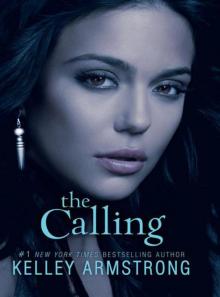 The Calling
The Calling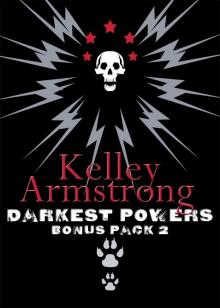 Darkest Powers Bonus Pack
Darkest Powers Bonus Pack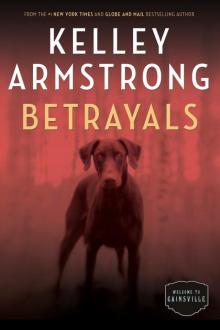 Betrayals
Betrayals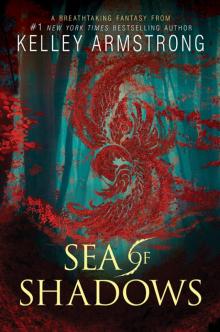 Sea of Shadows
Sea of Shadows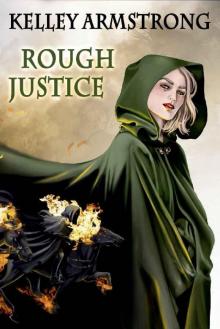 Rough Justice
Rough Justice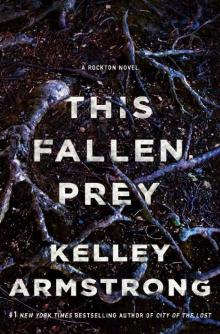 This Fallen Prey
This Fallen Prey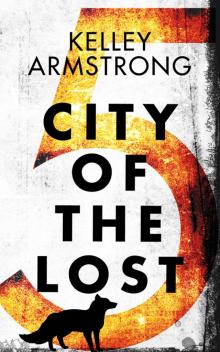 City of the Lost: Part Five
City of the Lost: Part Five Perfect Victim
Perfect Victim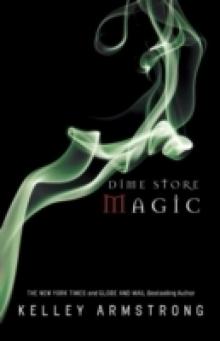 Dime Store Magic
Dime Store Magic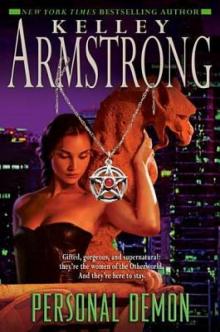 Personal Demon
Personal Demon Haunted
Haunted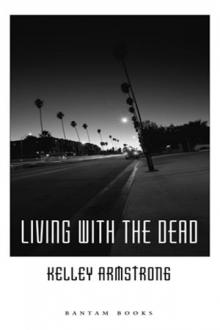 Living With the Dead
Living With the Dead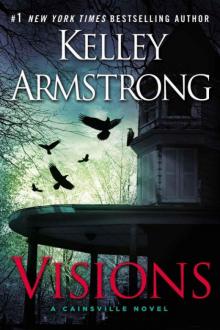 Visions
Visions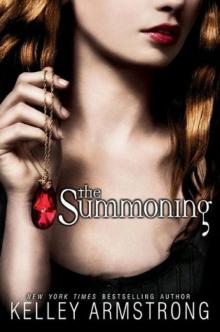 The Summoning
The Summoning Broken
Broken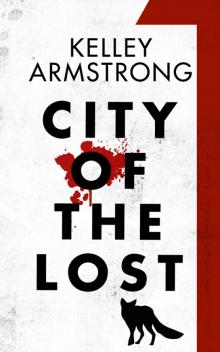 City of the Lost: Part One
City of the Lost: Part One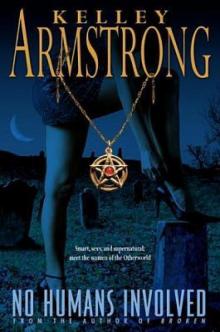 No Humans Involved
No Humans Involved The Awakening
The Awakening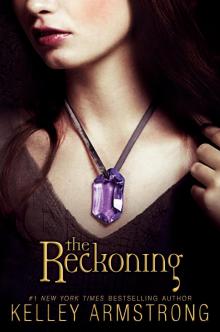 The Reckoning
The Reckoning The Gathering
The Gathering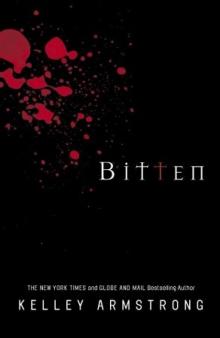 Bitten
Bitten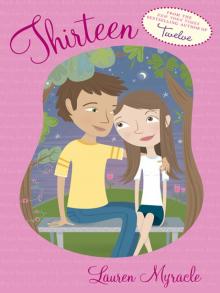 Thirteen
Thirteen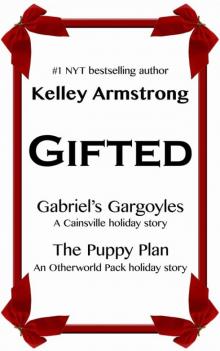 Gifted
Gifted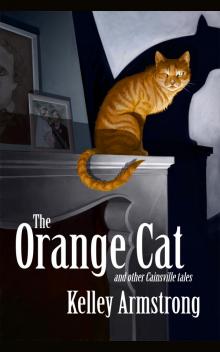 The Orange Cat and Other Cainsville Tales
The Orange Cat and Other Cainsville Tales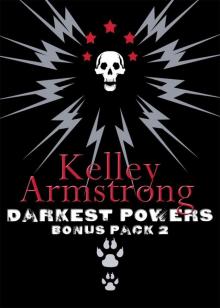 Darkest Powers Bonus Pack 2
Darkest Powers Bonus Pack 2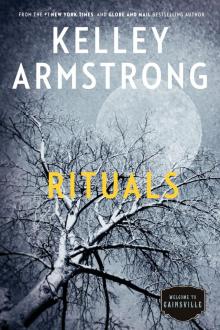 Rituals
Rituals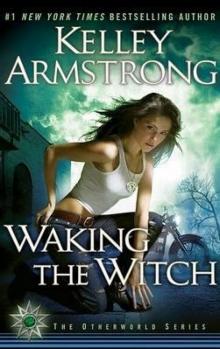 Waking the Witch
Waking the Witch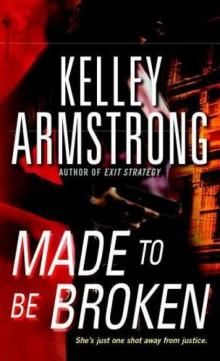 Made to Be Broken
Made to Be Broken Lost Souls
Lost Souls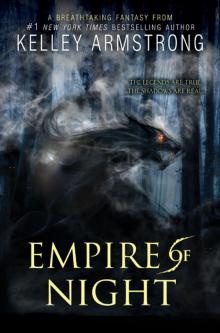 Empire of Night
Empire of Night Wild Justice
Wild Justice Double Play
Double Play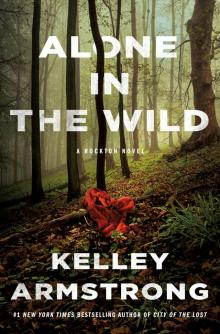 Alone in the Wild
Alone in the Wild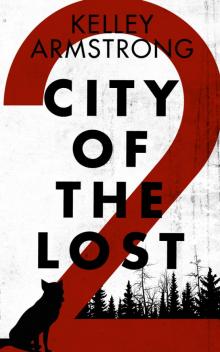 City of the Lost: Part Two
City of the Lost: Part Two A Stranger in Town
A Stranger in Town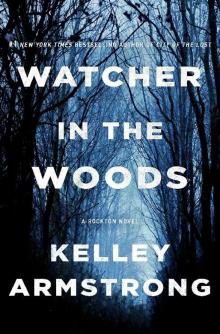 Watcher in the Woods: A Rockton Novel
Watcher in the Woods: A Rockton Novel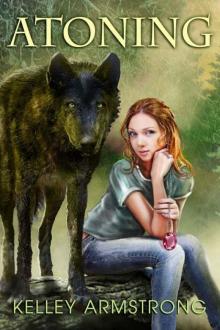 Atoning
Atoning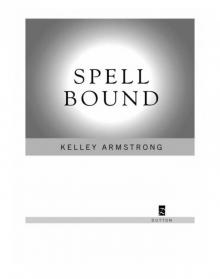 Spellbound
Spellbound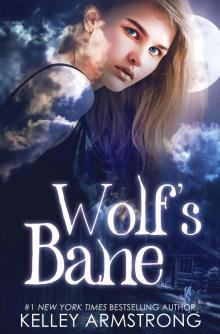 Wolf's Bane
Wolf's Bane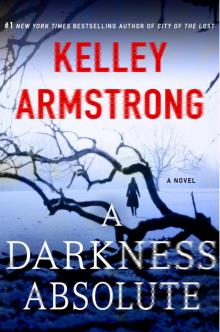 A Darkness Absolute
A Darkness Absolute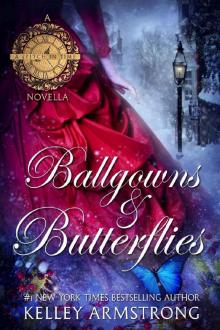 Ballgowns & Butterflies: A Stitch in Time Holiday Novella
Ballgowns & Butterflies: A Stitch in Time Holiday Novella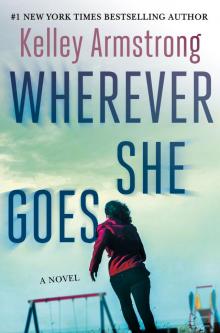 Wherever She Goes
Wherever She Goes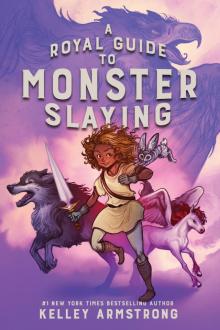 A Royal Guide to Monster Slaying
A Royal Guide to Monster Slaying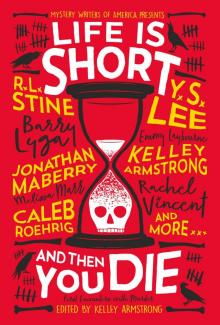 Life Is Short and Then You Die
Life Is Short and Then You Die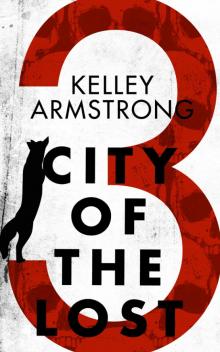 City of the Lost: Part Three
City of the Lost: Part Three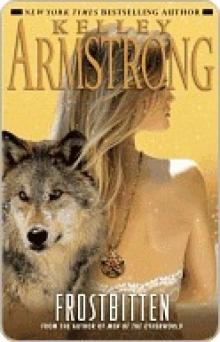 Frostbitten
Frostbitten A Stitch in Time
A Stitch in Time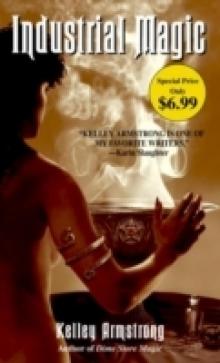 Industrial Magic
Industrial Magic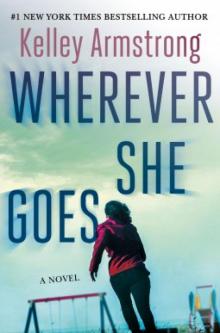 Wherever She Goes (ARC)
Wherever She Goes (ARC)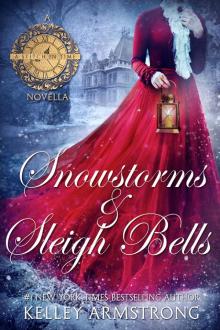 Snowstorms & Sleigh Bells: A Stitch in Time holiday novella
Snowstorms & Sleigh Bells: A Stitch in Time holiday novella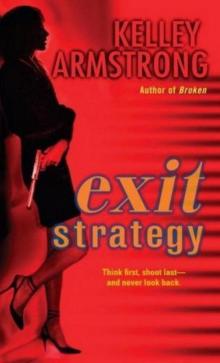 Exit Strategy
Exit Strategy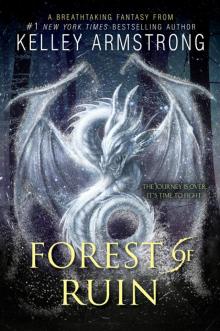 Forest of Ruin
Forest of Ruin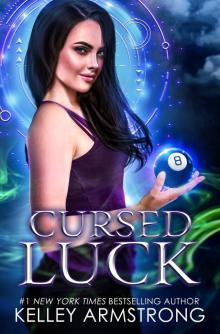 Cursed Luck, Book 1
Cursed Luck, Book 1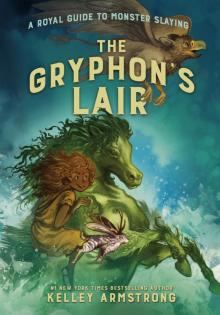 The Gryphon's Lair
The Gryphon's Lair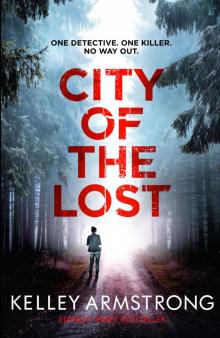 City of the Lost
City of the Lost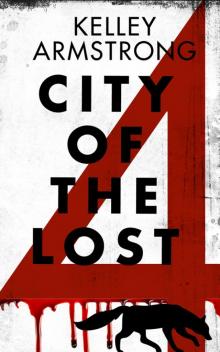 City of the Lost: Part Four
City of the Lost: Part Four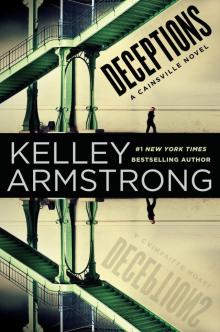 Deceptions
Deceptions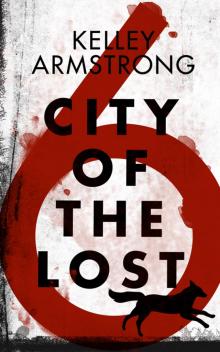 City of the Lost: Part Six
City of the Lost: Part Six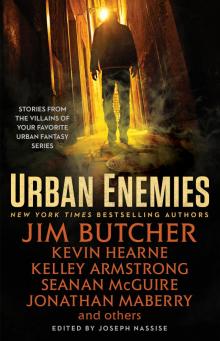 Urban Enemies
Urban Enemies Stolen
Stolen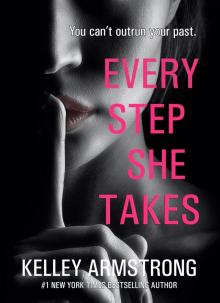 Every Step She Takes
Every Step She Takes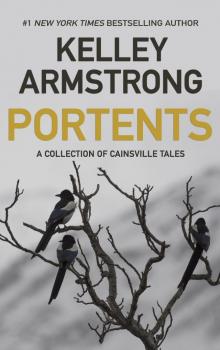 Portents
Portents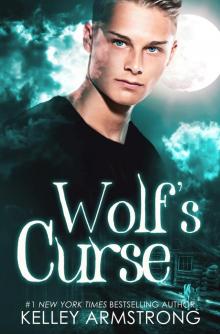 Wolf's Curse
Wolf's Curse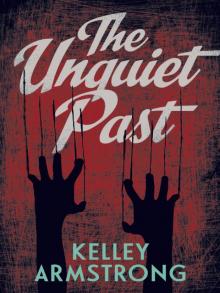 The Unquiet past
The Unquiet past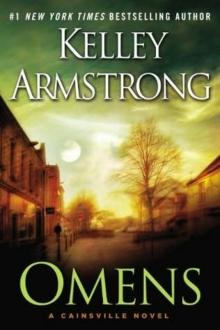 Omens ct-1
Omens ct-1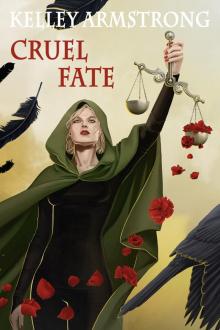 Cruel Fate
Cruel Fate The Calling dr-2
The Calling dr-2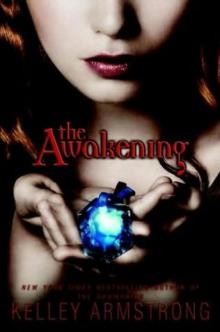 The Awakening dp-2
The Awakening dp-2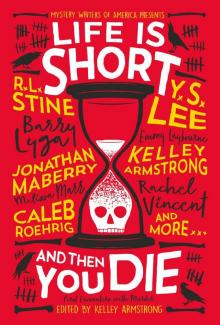 Life Is Short and Then You Die_First Encounters With Murder From Mystery Writers of America
Life Is Short and Then You Die_First Encounters With Murder From Mystery Writers of America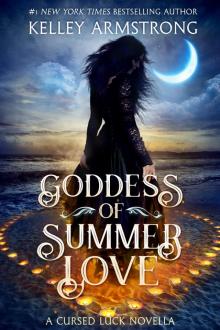 Goddess of Summer Love: a Cursed Luck novella
Goddess of Summer Love: a Cursed Luck novella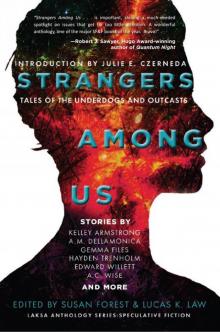 Strangers Among Us
Strangers Among Us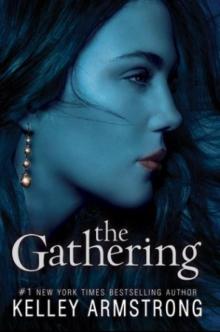 The Gathering dr-1
The Gathering dr-1 The Rising dr-3
The Rising dr-3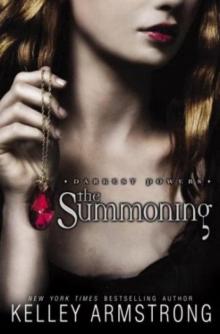 The Summoning dp-1
The Summoning dp-1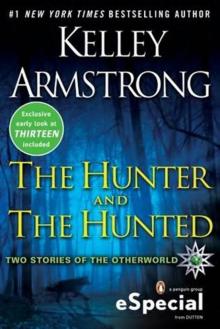 The Hunter And The Hunted
The Hunter And The Hunted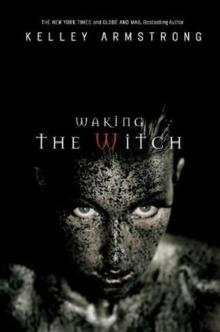 Waking the Witch woto-11
Waking the Witch woto-11